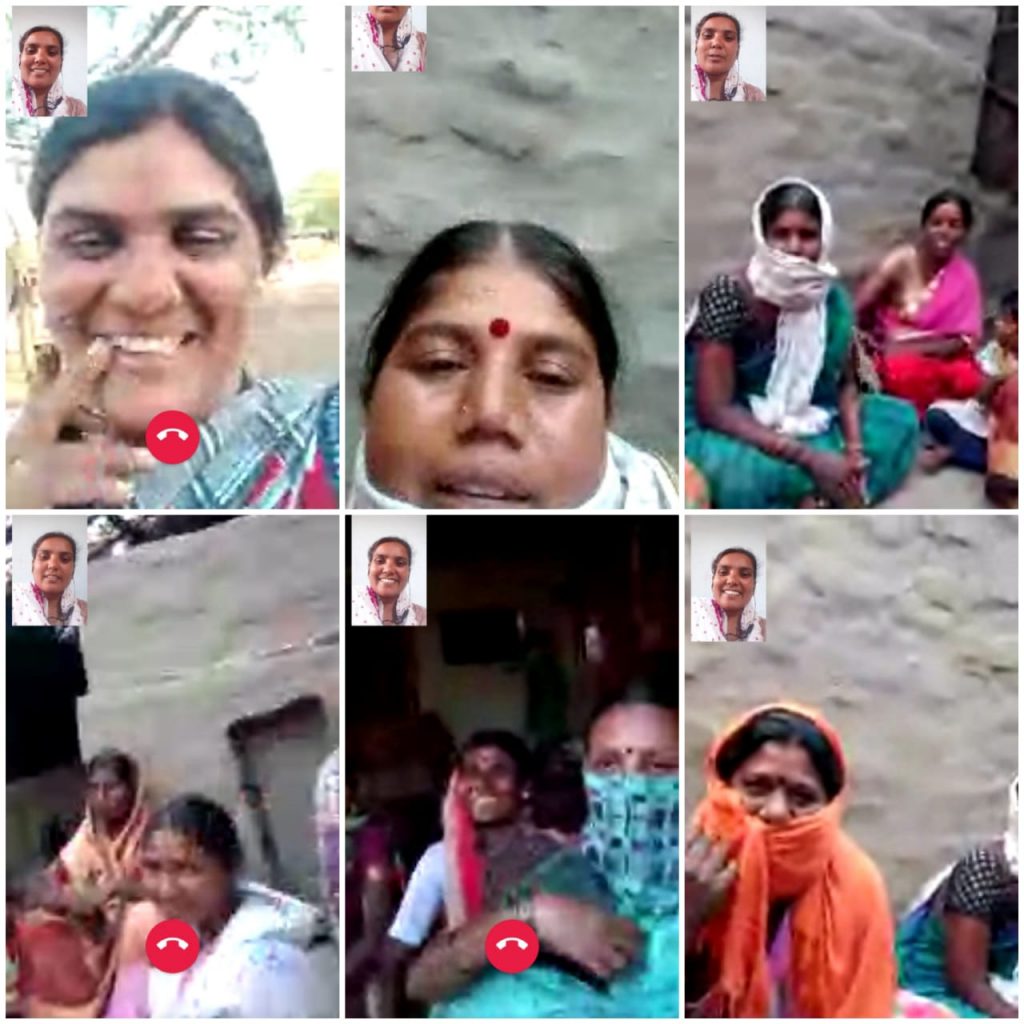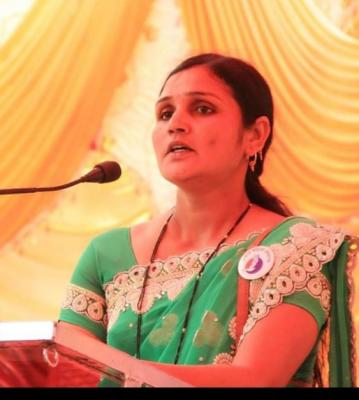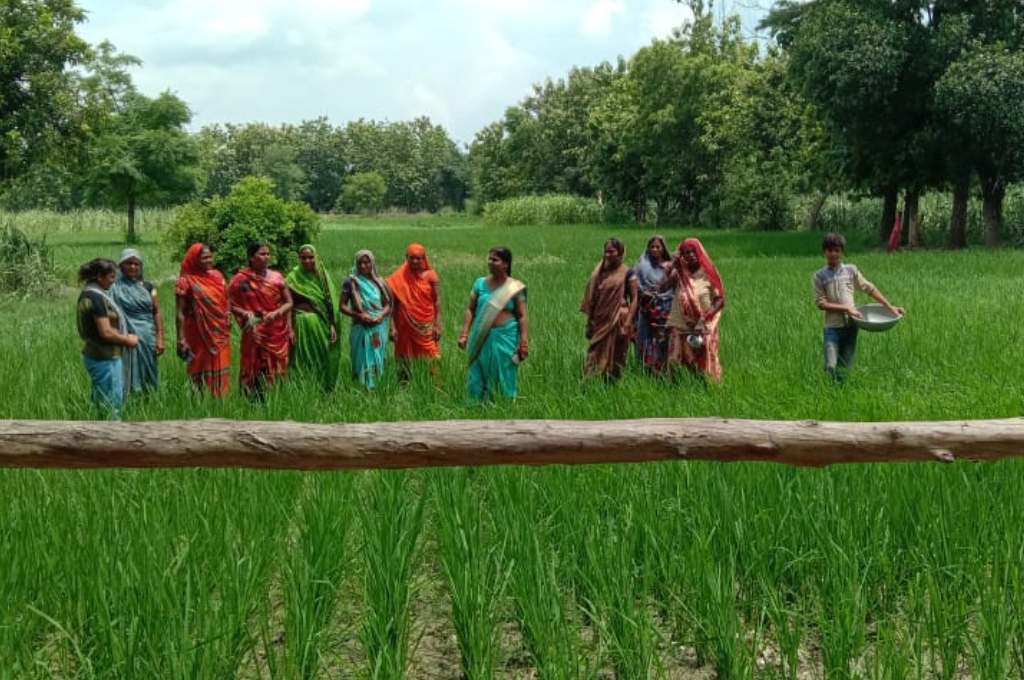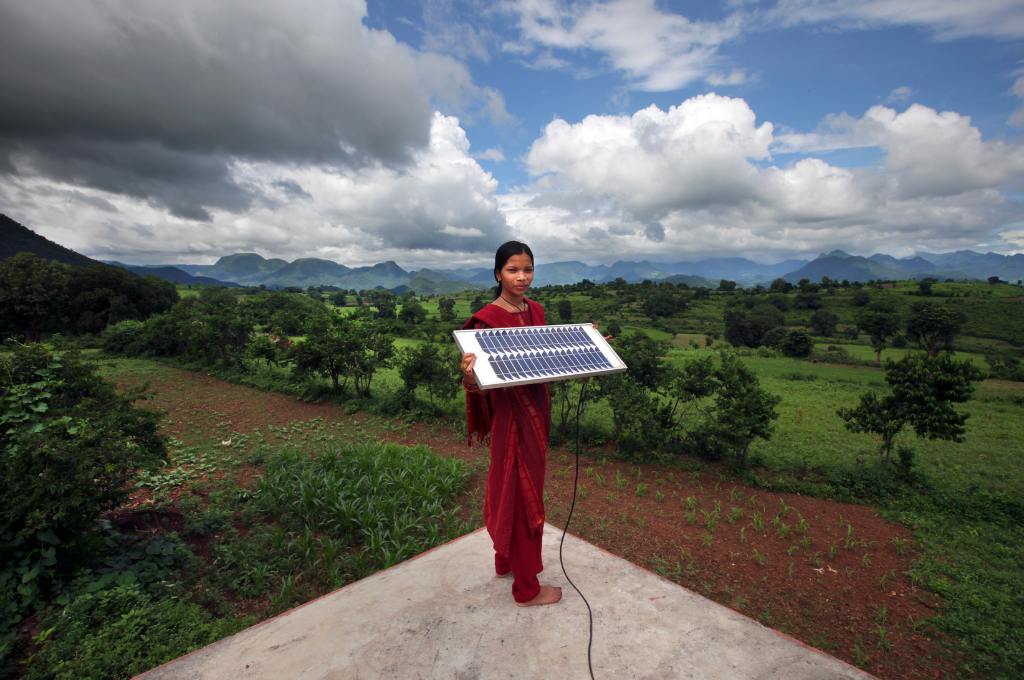Read the Marathi version of this article here.
I live in Tuljapur block in Osmanabad district, Maharashtra. I am part of CORO’s Grassroot Leadership Development Program (GLDP) and I work with 16,000 women in 15 blocks across four districts in the Marathwada region.
Before the COVID-19 crisis struck, I would spend 20-25 days every month, in the field, meeting mahila mandal (women’s group) members across the districts I’m responsible for—Beed, Nanded, Latur, and Osmanabad. Through these interactions, I would understand the issues that they face—related to health, livelihoods, or domestic violence—and help them find solutions.
Now, because of the lockdown, I spend most of my time on the phone. The calls start at 8.30 in the morning and go on till almost 10.30-11 at night. I enquire about the women’s well-being, understand their immediate concerns, and figure out ways to address their problems remotely.

“Now, because of the lockdown, I spend most of the time on the phone.” | Picture courtesy: Lakshmi Waghmare
Initially, the women were not comfortable speaking on the phone; conversations would be stilted and transactional. But over time, they have gotten used to phone conversations being the new normal and have started opening up about their issues.
When the lockdown started and women were told to stay at home, there was fear and uncertainty about the disease, but more about them not having any work and income.
When the lockdown started and women were told to stay at home, there was fear and uncertainty about the disease, but more about them not having any work and income. We spent most of the first few weeks telling them about what was happening in the outside world, and assuring them of our support during these times.
We have a communication and command structure which comprises of us GLDP members at the district, block sahelis at the talukas, three village-level leaders (pramukh, adhyaksh, and sachiv), and finally the mahila mandal members themselves. This hierarchy allows us to be connected with all the women, understand their issues at each level, and attempt to solve them.
9.30 AM: I call a widow in Mardi in Lohara block. She’s deeply moved to receive a call from us. “Ata paryant mala kuthchya hi natevaikane phone nahi kela. Koni tari ata chaukashi keli—khoop bara vaattye.” None of my relatives have called me in so many weeks. It feels nice that someone has called to check in on me.
For single women and widows who live alone, these calls have been most heartwarming. Forced to stay at home, and with no family, they have no one to talk to. Calls from the CORO field team have helped reduce their apprehensions and sense of isolation.
11.30 AM: I do a conference call with some of the block sahelis to understand the emerging issues in their villages. One of them tells me, “gharat taan tanav waadle aahe”. There is increased tension in many households.
With their husbands home all day, women are forced to spend all their time in the kitchen. Men occupy and dominate the living spaces in the house watching TV, playing cards, or chatting, and make constant demands for different kinds of food. Most women are unhappy and frustrated with this situation, because their movement is severely curtailed and they are always at their husband’s mercy.
Most women are unhappy and frustrated with this situation, because their movement is severely curtailed.
One thing they are happy about is the continued closure of liquor shops. Initially when the men had money and shops were open, they would spend the household’s savings on alcohol, come home drunk, and beat their wives and children. With no access to liquor now, verbal and physical abuse due to drunkenness has come down significantly.
3.30 PM: I get a call from a woman who is worried about what the future will look like. “We have run out of our last stock of jowar and our money is over too. When will work start? When will we be able to earn again? Will this ever end or not?” she asks.
With no work in the fields or elsewhere, women are increasingly worried about money. Given the increased demand for face masks due to the virus, some of the women started stitching them a few weeks ago. We convinced some of the gram panchayats to buy these masks. Till date, the women in our network have stitched 6,500 masks in total; they are being paid INR 8-10 a mask by the panchayats.
We also realised that we could not provide support to all 16,000 women and had to focus on the most vulnerable. We asked the women leaders in each village to send us a list of the women most in need of help, via WhatsApp. This was compiled and sent to the CORO team in Mumbai. We then identified capable shops in each block and asked them to prepare kits of essential supplies. The shopkeepers were paid through direct bank transfers. The block sahelis picked up the kits and delivered it to the homes of the 1,100 most vulnerable women whom we had identified.

“This lockdown has shown us that we can do our work just as effectively with our mobile phones.” | Picture courtesy: Lakshmi Waghmare
5 PM: I speak to the block saheli who has gone to one of the villages and mobilised the women without phones; around 30 percent of our women members do not have mobile phones. She puts her phone on speaker and makes the women sit with sufficient distance between each of them.
Most of the women tell me that in the absence of visits from their sahelis or me, they feel a little lost. They also tell me about the rumours they are hearing—that the virus will go away if they worship a tree, or do some puja. I tell them that this is false information and they shouldn’t pay heed to it.
8 PM: It’s time for a conference call again with the sahelis to take stock of the day—what were the issues they came across, how did they resolve them, how do they need to prepare themselves for the next day, and so on. This helps us understand the situation in the villages and if there are things that need to be escalated and addressed at higher levels.
We always thought that for us to do our work well, we would have to be physically present in the villages. But this lockdown has shown us that we can do our work just as effectively with our mobile phones.
Note: Lakshmi insisted that we mention that she is but one member of a 33-person team (four CORO fellows and employees, and 27 block sahelis); “Their days look a lot like mine, which explains how we are able to cover 16,000 women across four districts,” she said.
As told to IDR.
—




